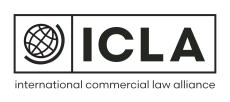Employers will no doubt be aware of the rigorous and complicated policy requirements that Immigration New Zealand (INZ) introduced into its Employer Accreditation policy in August last year.
In our article discussing these changes, we also highlighted INZ’s more positive move in (seemingly) allowing an Accredited Employer who has held accreditation for in excess of two years to be considered for a five year renewal, rather than the (now) standard two year renewal term.
In order to be considered for Employer Accreditation for a five year duration, the policy simply provides that INZ will consider the following (only):
- Whether the employer has demonstrated they have met or exceeded the accreditation policy requirements in the previous two years;
- The likelihood that the employer will remain in a sound financial position for the next five years; and
- The likelihood that the employer will continue to meet or exceed the accreditation policy requirements, including resources and systems to managed HR policies and processes, training and recruitment of Kiwis, and compliance with immigration and employment laws.
In reality however, where an employer clearly meets the above criteria INZ are still not exercising their discretion to grant five year renewals. Interestingly, we have received advice from INZ that “…we are only granting accreditation for a five year period to government entities or departments. Once other entities have held a two year accreditation we will consider them for a five year accreditation period.”
This current “default” position of INZ makes a farce of this longer term extension policy, because even though they have the ability to exercise discretion it appears that government entities or departments will be the only benefactors of this policy.
Although INZ’s policy allows for stringent audits, and an easier revocation of accreditation, will they have the manpower to undertake sufficient compliance checks for their comfort? It appears not. It may well be that this stance is simply being adopted because INZ simply does not have the resources to actively manage compliance in this area over a longer term of 5 years.



